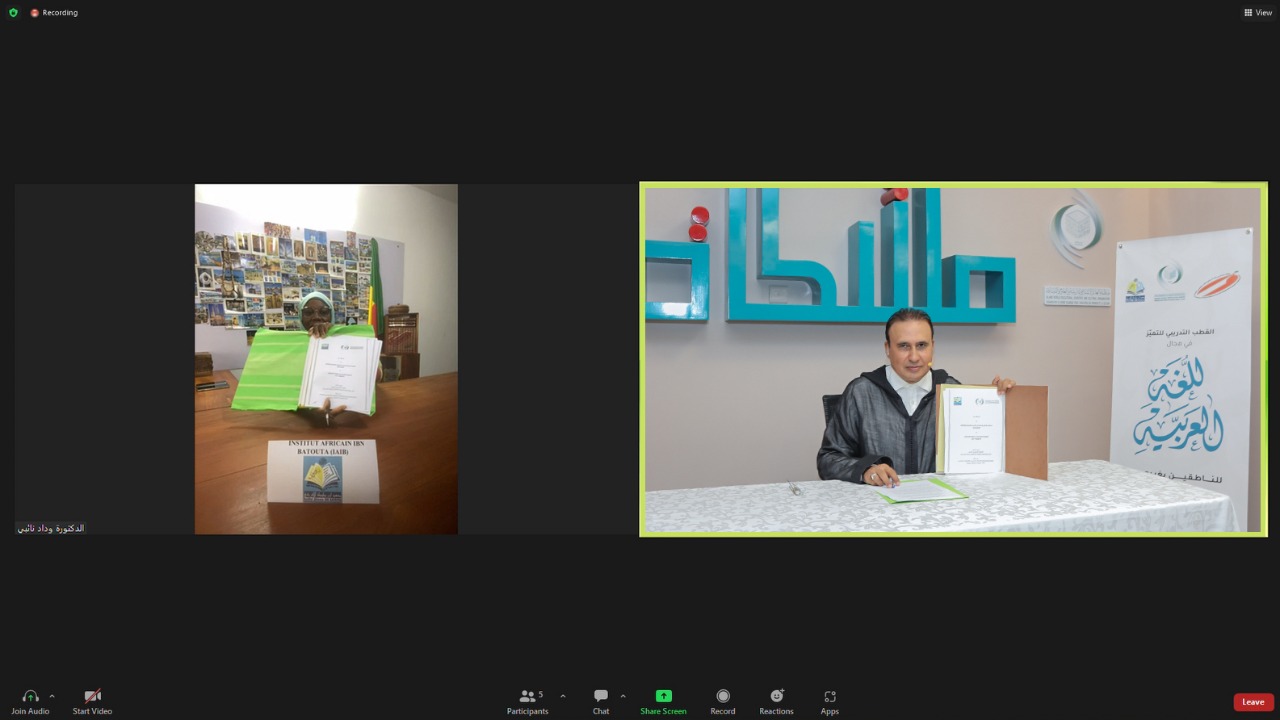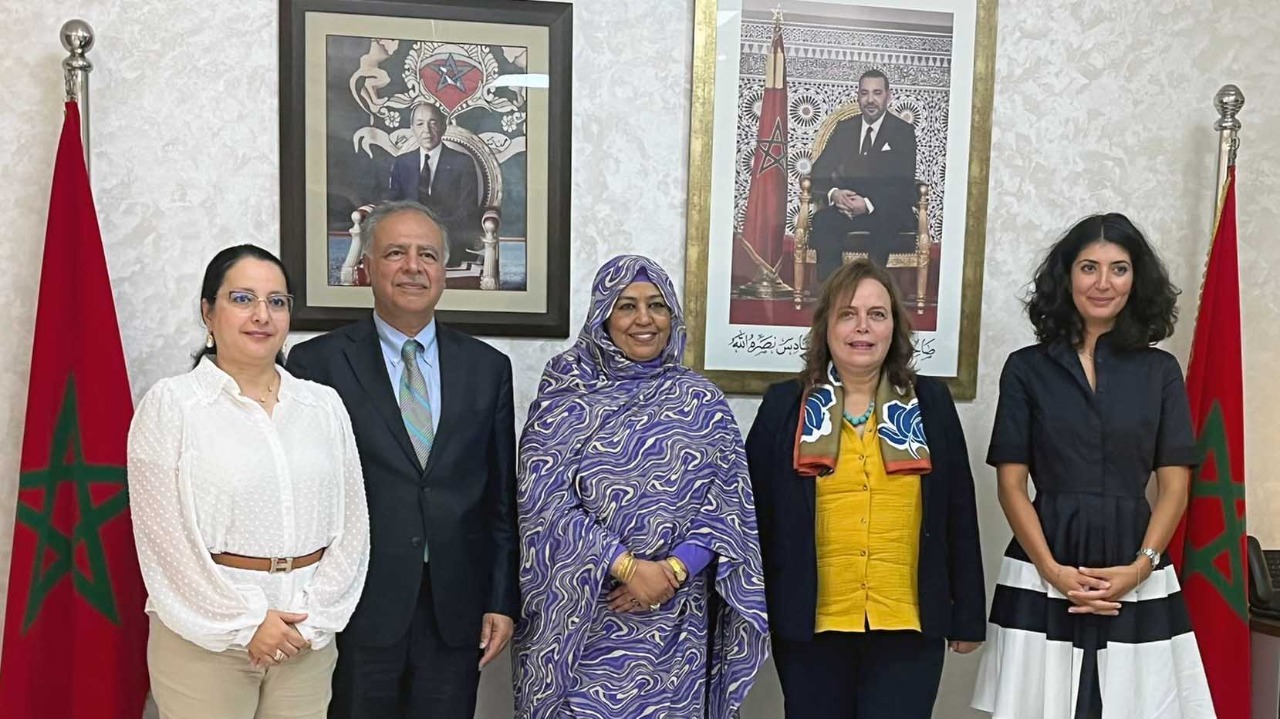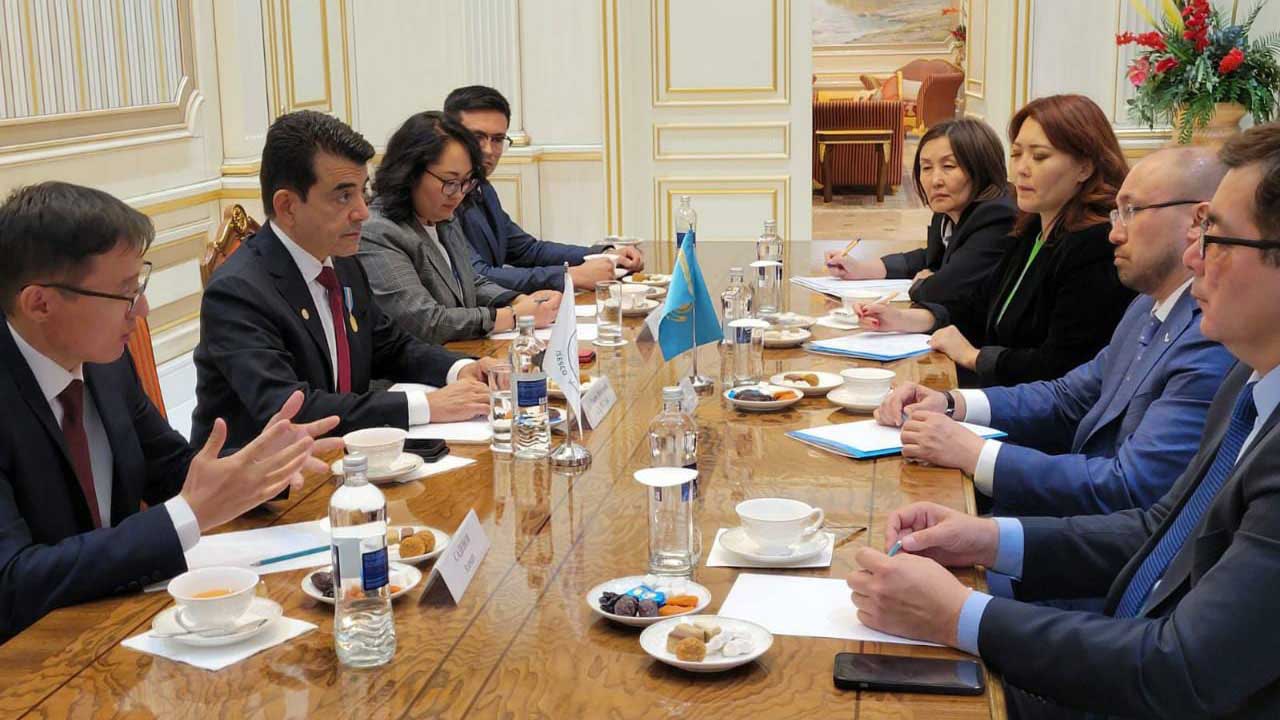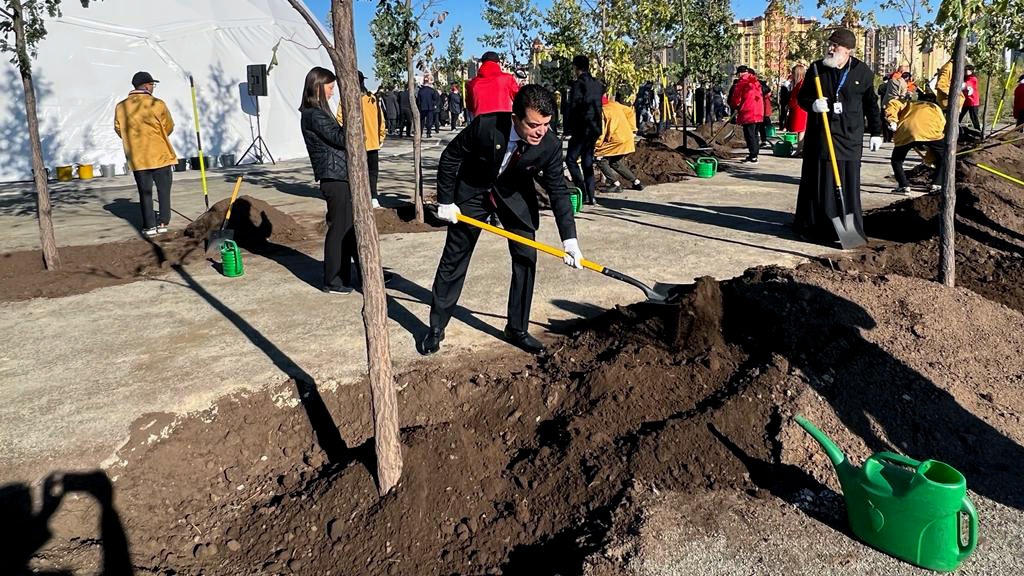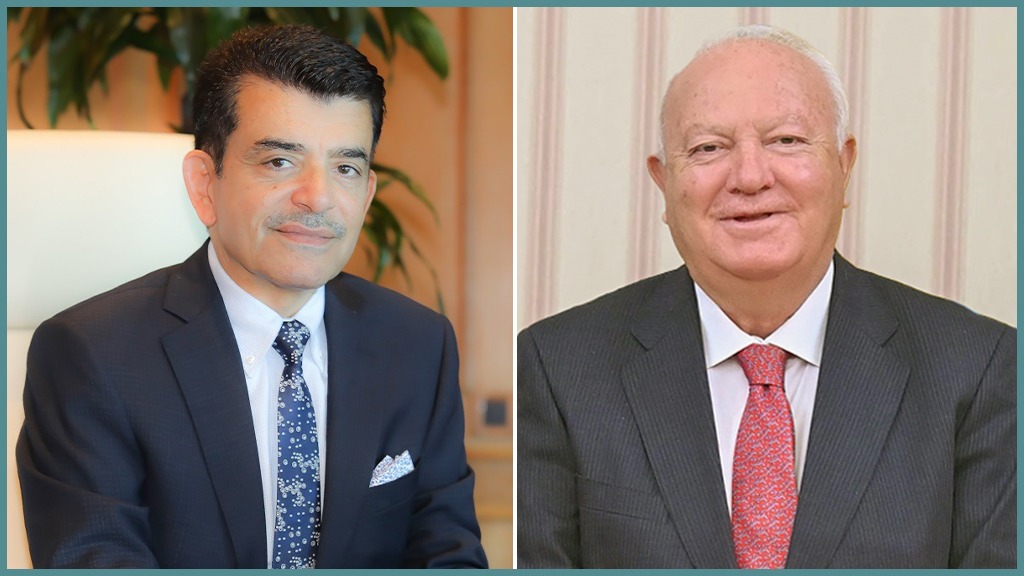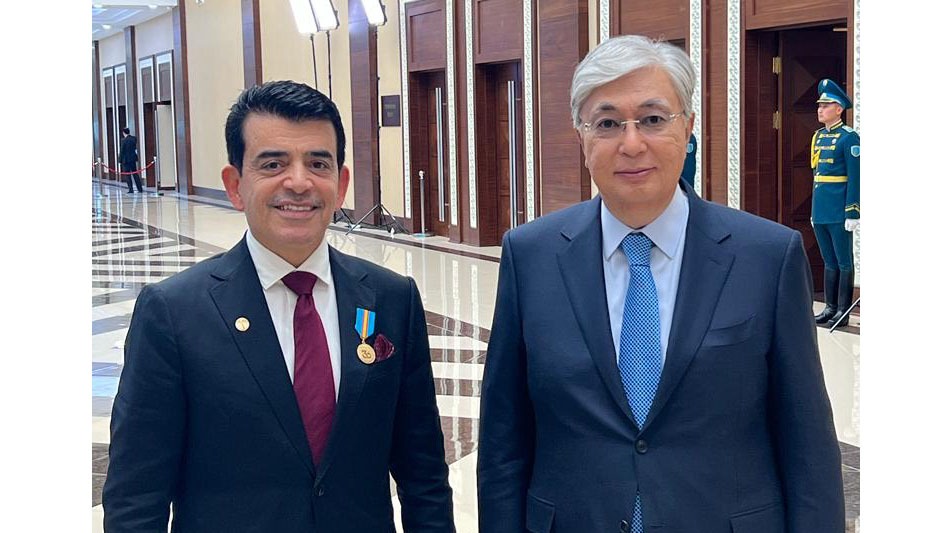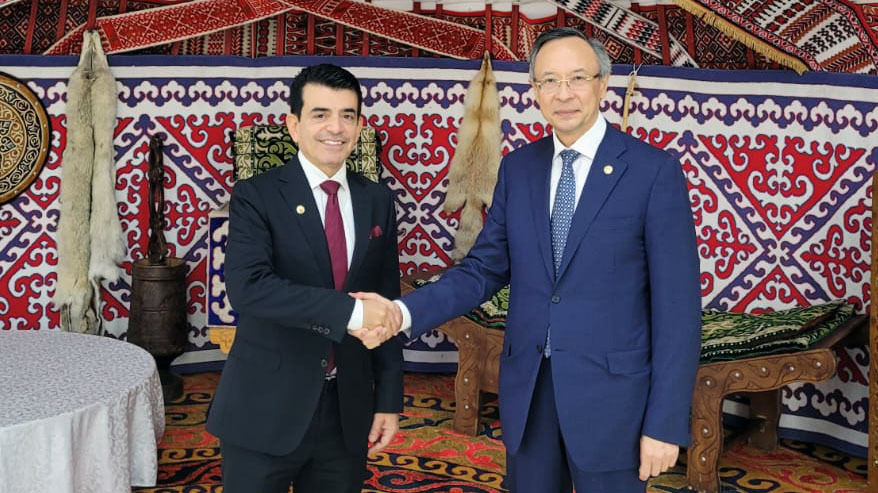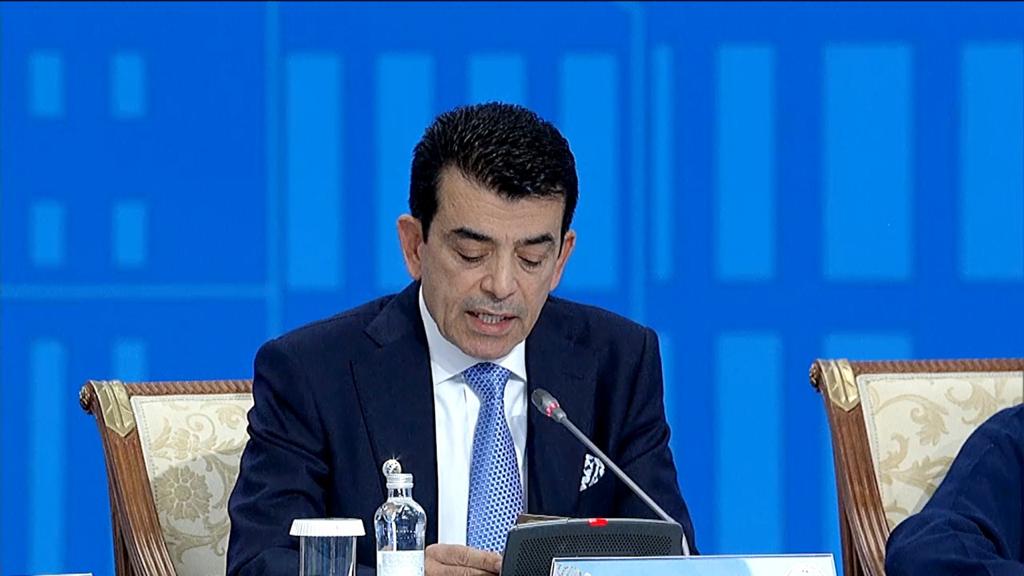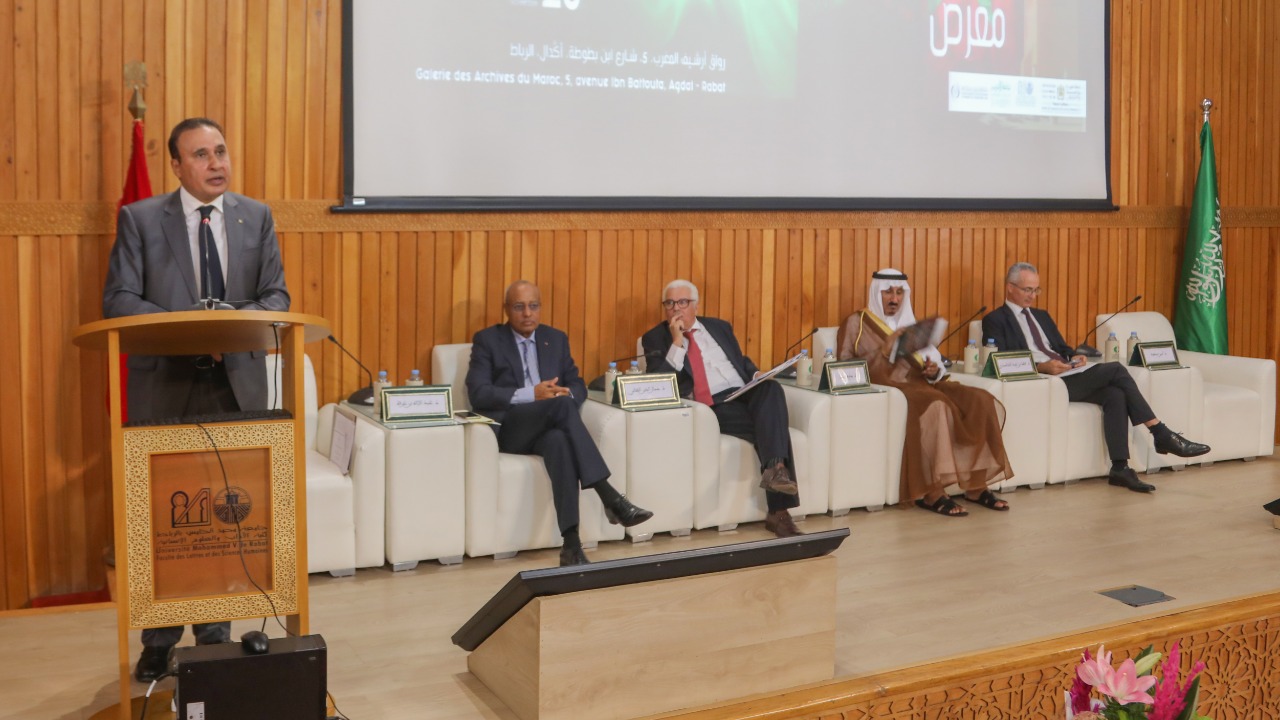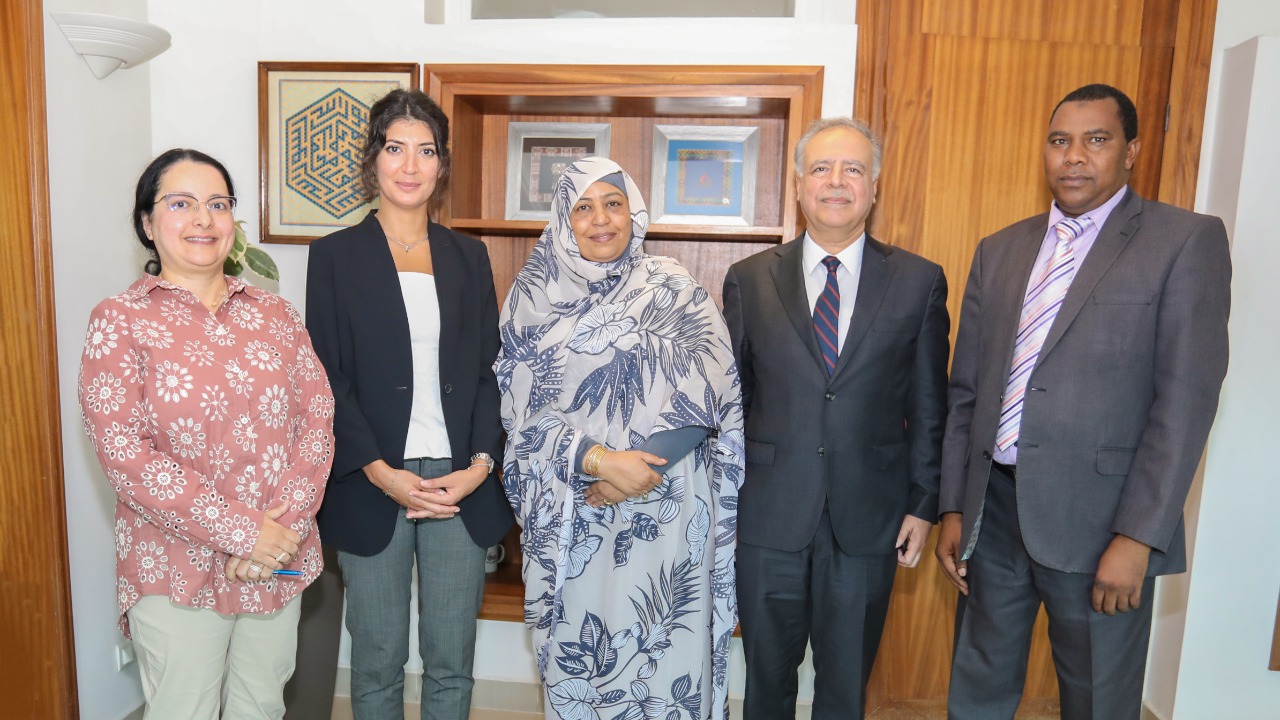The Islamic World Educational, Scientific and Cultural Organization (ICESCO) and Ibn Batouta African Institute of the Republic of Benin signed a cooperation agreement to establish a Training Pole for Excellence in the field of Arabic for non-Arabic speakers within the institute, in partnership with Hamdan Bin Rashid Al Maktoum Foundation for Distinguished Academic Performance.
The agreement was signed, on (September 16, 2022), at ICESCO’s Mishkat Hall, by Dr. Abdelilah Benarafa, Deputy Director-General of ICESCO, in the presence of several heads of ICESCO’s sectors and departments, and by Dr. Widade Naibi, Director of Ibn Battuta African Institute, via videoconference.
The Training Pole seeks to help the Republic of Benin build its national capacities in Arabic education through the qualification of Arabic teachers and educational staff. In its first phase, the Center’s programmes will focus on remote training activities through Mishkat Hall.

In his address during the signing ceremony, Dr. Benarafa stressed that the establishment of this Training Pole in Benin falls within the framework of ICESCO’s vision, which aims at promoting interest in major educational projects that meet the needs of Member States, noting that ICESCO’s programme of training poles and academic chairs on teaching Arabic for non-Arabic speakers, which are implemented in cooperation with Hamdan Bin Rashid Al Maktoum Foundation for Distinguished Academic Performance and the hosting parties, is a successful model of multilateral partnership.

For her part, Dr. Widade Naibi indicated that the establishment of this Training Pole comes under appropriate conditions in the Republic of Benin to be a major contribution to the advancement of the Arabic education system in Benin and other West African countries through educational training and qualification.


